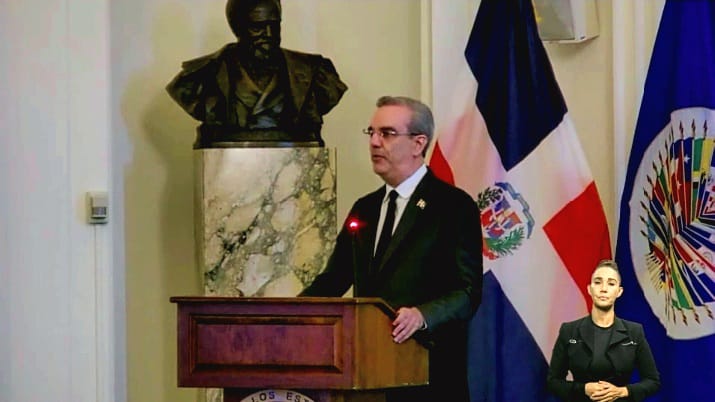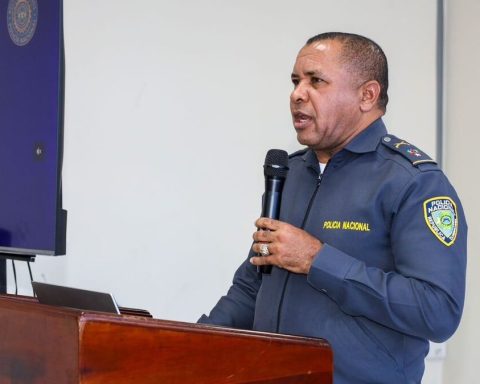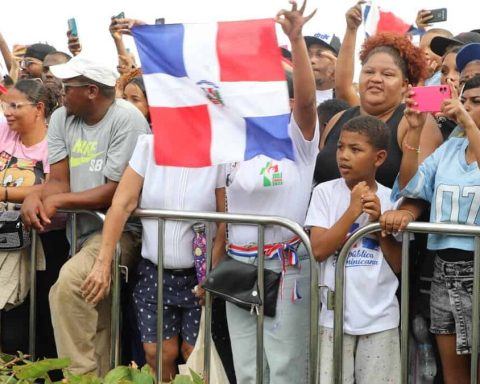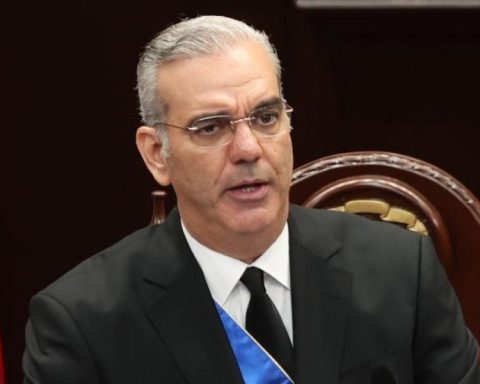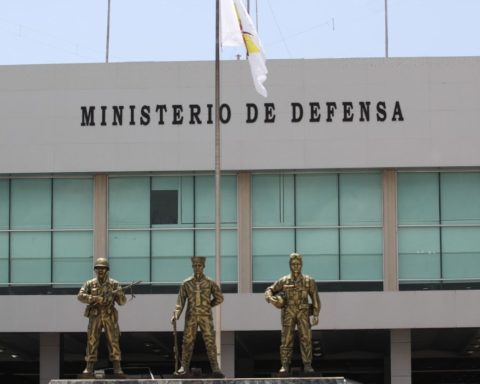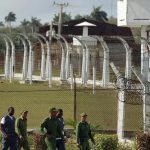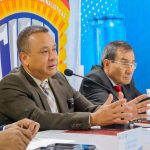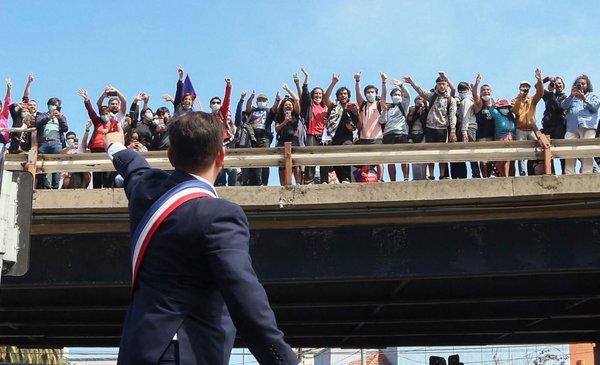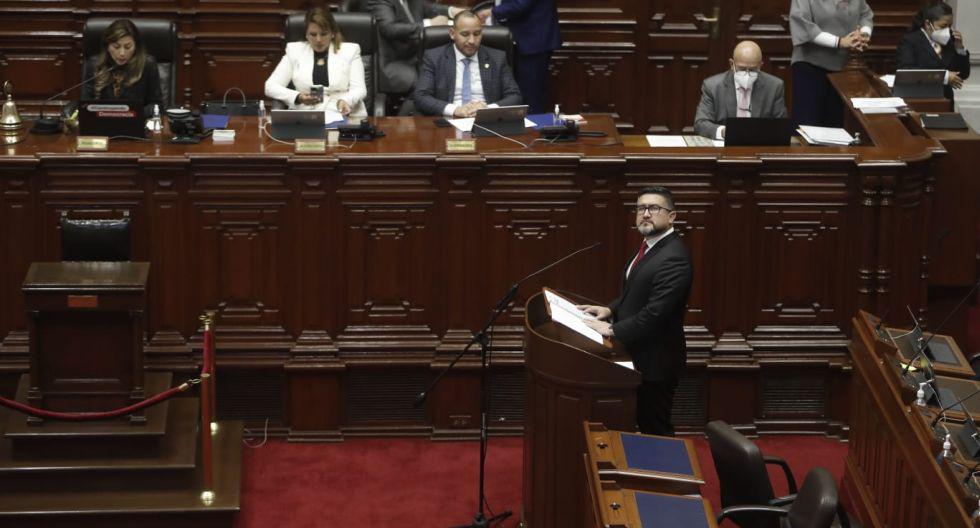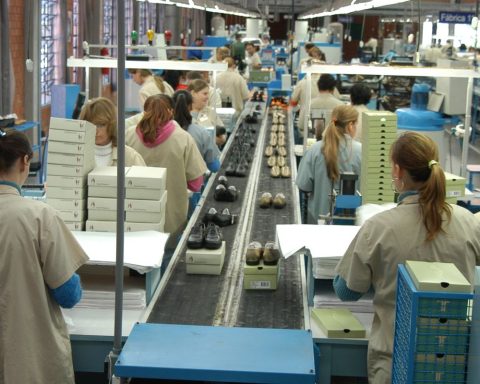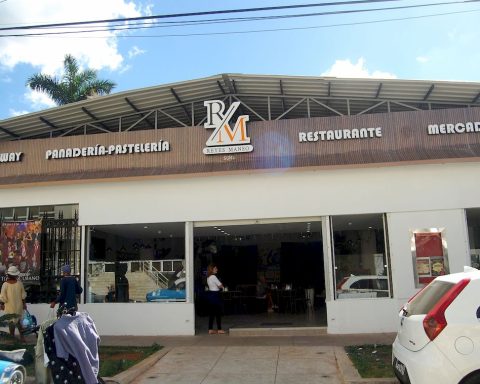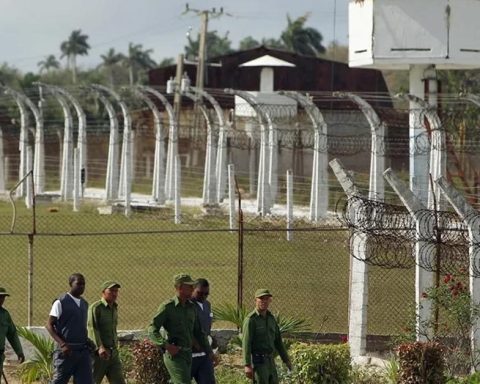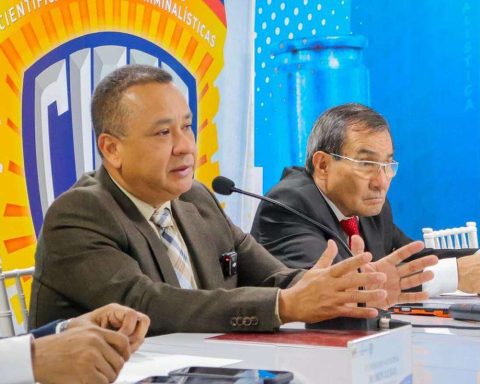The President of the Republic, Luis Abinader, spoke this Thursday before the Parliamentary Session in the Organization of American States (OAS), on the crisis in Haiti and the situation I know that lives before the insecurity of this nation.
Below is the president’s full speech:
LUIS ABINADER, RD CONSTITUTIONAL PRESIDENT: SPEECH BEFORE THE OAS PERMANENT COUNCIL, WASHINGTON D.C.
Honorable Ambassador Lou-Anne Gilchrist, President of the Permanent Council and representative of Saint Vincent & the Grenadines.
His Excellency Irfaan Ali, President of the Cooperative Republic of Guyana.
Her Excellency Mia Mottley, Prime Minister of Barbados.
His Excellency Mr. Luis Almagro Lemes, Secretary General of the Organization of American States (OAS),
His Excellency Néstor Méndez, Assistant Secretary General of the Organization of American States (OAS),
Permanent and alternate representatives of the member countries of the Organization of American States,
Representatives of the permanent observer countries. Ladies and Gentlemen,
On behalf of the Dominican people, I want to send you an affectionate greeting.
It is an honor for me to speak before this Permanent Council on behalf of the government of the Dominican Republic in this Hall of the Americas, that for 110 years has witnessed the most important conversations to maintain peace and governability in our continent.
I also take this opportunity to, with great regret, express our condolences to the member states and observers of this organization that are part of the Commonwealth of Nations for the death of Her Majesty, Queen Elizabeth II. Her example of her dedication to public service will be remembered forever.
I begin this intervention by telling you about how, despite great adversity, in our country we have produced positive and significant changes for the Dominican people.
Like all the countries in the region and the world, we face the enormous challenges posed by the effects of a pandemic, a war and climate change.
Our government focused on mitigating the spread of the virus very early on. By vaccinating with agility, we managed to reduce the lethality due to the terrible disease. This brought us recognition and admiration, which we humbly receive and thank. For example, last May, the World Health Organization (WHO) congratulated the performance and leadership of the Dominican Republic in the face of the pandemic.
While we fought to preserve the health of Dominicans, we also focused on reactivating the economy. In 2021, our country achieved a growth of 12.3%, placing it among the ten fastest growing economies in the world. We focus on recovering tourism; and we did it with such success that the World Tourism Organization recognized us as the number one country in the world in the recovery of tourism.
Our results are the product of a hard-working people, an entrepreneurial private sector, a consolidated democracy, and a government committed to confronting impunity and corruption.
We recently enacted a Law of Extinction of Domain that will allow the recovery in favor of the Dominican State of the assets acquired in illicit actions resulting from drug trafficking, corruption and other serious crimes.
Notwithstanding these and other advances we have made, it is necessary to responsibly address the challenges that are presented to us as a country and as a region.
The Dominican Republic faces a unique situation internally, unique in the entire hemisphere. We are referring to the impact that the prolonged crisis in the Republic of Haiti has on our economy, our security, and our social stability.
The effects of the multidimensional crisis in that country exceed our individual capacity and constitute a threat to the stability and security of the entire region.
For the Dominican Republic, it is a matter of national security. I want to repeat it so that it is engraved in the memory of this solemn session in the Hall of the Americas: the crisis that overflows the borders of Haiti is a threat to the national security of the Dominican Republic.
It is impossible to deny the danger that a State does not have control and monopoly of force over its territory represents. We are faced with the real possibility that criminal gangs operating in Haiti may attempt to transgress territorial integrity and attempt to disrupt public order and security in our country.
The transit of people and merchandise from our country to Haiti has been extremely risky for a long time.
Our government is doing and will do everything in its power to ensure the peace and security of our citizens and everyone under our jurisdiction..
That is why we have started the construction of a perimeter fence in the most vulnerable and sensitive areas. In addition, we have taken measures to prohibit the entry into our country of individuals associated with these groups, and those who deliberately threaten our stability.
In the multilateral sphere, the Dominican Republic advocates for robust mandates from the international community that allow the Haitian authorities to have the assistance and cooperation to urgently overcome the violence and its causes, strengthening the capacities of its State, which, unfortunately, has not been possible so far.
That is why we call on this Organization and its Secretary General to play a relevant role in achieving the objectives established in the resolution of the United Nations Security Council, number 2645 of July 15 of this year. In it, the crucial role played by neighboring countries, regional and subregional organizations, including this Organization of American States (OAS), is recognized and legitimized.
How can the OAS collaborate?
First: Haiti has requested cooperation to improve the security of certain critical infrastructure, especially its ports and airports. The Dominican Republic has accompanied this interest and has supported all the initiatives that the Inter-American Committee on Ports has conceived to materialize this objective. So far, very little has been achieved; this is an urgent action and efforts must be redoubled.
Second: The Organization of American States (OAS) must assist in the creation of mechanisms and capacities related to the control of arms and ammunition that reach the hands of criminal organizations. This issue is critical and is among the operative paragraphs of UN Security Council Resolution 2645.
Third: That the OAS, coordinate with member countries and the UN, the training, training and controlled supply of public security forces, that is, the Haitian National Police.
Fourth: As soon as security conditions allow, it is necessary to collaborate with the Haitian authorities to organize an electoral process that will result in a government and elected authorities with leadership, legitimacy and popular support. The OAS must continue carrying out fundamental actions in favor of democratic elections, one of them is to provide an adequate civil registry to the entire Haitian population.
Ladies and Gentlemen,
Let me now turn to our expectations about the role of the international community in terms of the security situation.
The Dominican Republic participated in the process of discussion and negotiation of the terms of the mandate of the United Nations political mission that was installed in Haiti in 2020. Since the departure of the UN Stabilization Mission, we insist on the creation of strong multidimensional mandates, adequately financed and that would give priority to the needs defined by the Haitian authorities.
Two years as non-permanent members of the UN Security Council were not enough to fully understand the urgency. The result of this misunderstanding is the crisis we are seeing today. We salute the work that is currently being carried out from that body by two member states of this organization: the United Mexican States and Brazil. Your enthusiastic and determined participation is fundamental and here I want to recognize it.
Mr. Secretary General,
Just a few weeks ago we received your report on the situation in Haiti.
Laden with reality, his words echoed a collective sentiment that no one had ever captured so succinctly before. Now is the time for actions, for nuclear efforts and for promoting transformative processes. We are aware of your effort and the efforts that you have been carrying out in favor of Haiti.
We are also aware of what many of the countries gathered here over the years have made available in human, economic and technical resources to assist the Haitian people in humanitarian matters, recovery from natural disasters and security.
So what has been missing? That’s the conversation we need to have.
The Dominican Republic requested, and so it has been decided, that the next OAS General Assembly take steps in this direction, and from there the foundations be created for a constructive and fluid exchange with the Haitian government, the United Nations Organization, and all those who have the desire and the will to cooperate and assist.
Haiti cannot wait any longer: its current situation can be defined as “a low intensity Civil War”. We must act responsibly and we must act now. Once again, the Dominican Republic has the need and the duty to reiterate that the most lasting and robust response to the Haitian crisis should come from the Haitians. We advocate and hope that this is the case, but every time we see the possibility of understanding and consensus in that neighboring nation more distant.
Distinguished representatives.
If the Americas is a zone of peace, as I said a while ago, it is largely due to the inter-American system, whose backbone is this organization. The OAS is as valid today as it was 74 years ago. It has allowed us to create spaces for dialogue, harmonize our legal systems, strengthen the protection of human rights and, in general, create shared democratic values.
I firmly believe that this organization has many more fruits to offer our peoples, and I invite all our governments to continue working to reform it.
We all face local, regional and global challenges, but only with loyal cooperation between States will we be able to provide an adequate response to each of these problems.
Our country has always offered more solutions than problems, and we are going to continue working along these lines: contributing, dialoguing for a peaceful, fairer, more inclusive and supportive continent.
A more prosperous, just and respectful America of human rights, is the commitment of the Dominican Republic.
Thank you very much.
